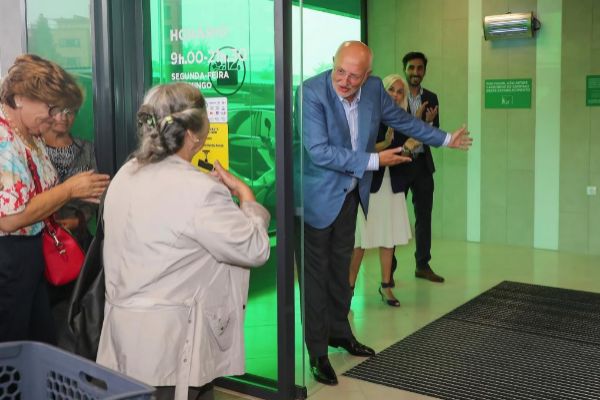- Mercadona lands in Portugal
Despite being sister states, confrontations between Portugal and Spain in the commercial sphere are frequent. The smallest of the Iberian neighbors tend to suspect the Spanish giants that land on Portuguese lands, and in the past patriotic campaigns have been organized against what they call the "Castilian invaders."
When El Corte Inglés opened its headquarters in Lisbon in 1993, a crowd demonstrated against the "colonization" of the city, and when Caixabank took over the Portuguese Investment Bank (BPI) in 2016, a group of leaders financiers signed a letter denouncing the "Spanishization" of national banks.
Precisely because he wants to avoid being seen as an invading force, Mercadona has executed his entry into the Portuguese market politely, operating on the principle that "in Portugal we are Portuguese." Elena Aldana, director of External Relations of the Valencian company in the neighboring country, explains that the more than 1,100 people who have been hired are Portuguese, operate with more than 300 Portuguese suppliers, and have created a company -Irmãdona Supermercados, SA- for create wealth and pay taxes in the Portuguese country.
"Since 2016 we have invested 270 million euros in Portugal, and we will do whatever it takes to not be a mere supermarket, but part of the local society," says the executive.
The client
With that aspiration in mind, Juan Roig's chain has endeavored to approach the client - the boss, according to the terminology of the company - Portuguese. Through the Coinnovation Center in Matosinhos - a laboratory in which consumer habits are studied - the products that the local public likes the most have been identified.
"Being brother countries, we think there would not be much difference, but we are different," says Aldana. «Here you like spicy things, and tropical fruit yogurts such as mango or passion fruit, flavors closely linked to the country's own history and to the former colony of Brazil».
«We have opted to offer national products following the sustainable agrifood chain model. We work with local suppliers and with long-term contracts, in order to give them stability that allows them to focus on investment, innovation and quality of goods.
As a particular nod to the Portuguese society, the company has developed certain initiatives to show its commitment to the populations in which it operates. Before even starting the construction of the first store in Canidelo, it was agreed to build the new headquarters of the local sports center. In Matosinhos, the idea of building new facilities was abandoned, and instead it was decided to recover the historic headquarters of the disappeared Basque Conservería de Gama, much loved by the residents of the area.
"Society is a fundamental pillar of our company's DNA," says Aldana. "Where we are, we try to be local, maintaining a very close relationship with the public, supporting food banks and avoiding disturbing our neighbors."
The strategy seems to have worked, because the day that opened the company's first supermarket in Vila Nova de Gaia there were already long lines of Portuguese bosses waiting to make the inaugural purchase, and in the two months that have passed since then there have been no missing customers there, not even in stores that have opened in Matosinhos, Maia and Gondomar.
competition on guard
The competition has been less delighted with the arrival of Mercadona, and taken steps to try to thwart the landing of the company. According to a study by the Portuguese Association for Consumer Defense, before the inauguration of the first Portuguese Mercadona, Sonae and Jerónimo Martins - the two groups that control more than 50% of the Portuguese market share - reduced prices by one third of Products in the Continente and Pingo Doce supermarkets, and Minipreço, the Portuguese subsidiary of Spain's Dia, launched dramatic promotions.
Aldana says the strategy was predictable, especially in the Portuguese market, in which promotions motivate 81% of consumers. «We are different, because we are committed to the SPB model: Always Low Prices. We keep prices stable, always offering the boss a top quality product at a competitive price. It is a model that benefits the customer, who no longer has to be aware of the coupons and accumulate products at home; It has worked in Spain, and we hope it will also be a success in Portugal ».
Before the end of the year the company will open six new supermarkets in the districts of Porto, Braga and Aveiro, but taking advantage of a new logistics center in Lisbon, the expansion to the central zone and, eventually, the southern southern regions and the Algarve in the near future.
According to the criteria of The Trust Project
Know more- Portugal
- Mercadona
- Spain
- The English Court
- CaixaBank
- Brazil
- TV
Savings and ConsumptionThe English Court of the 'future' will have more own brands and digital spaces "where to live experiences"
Savings and Consumption Algorithms and logistic poles, the revolution that nobody saw coming
Economy The Argentine crisis leaves 5,750 million euros of Spanish investment in the 'Macri era'

